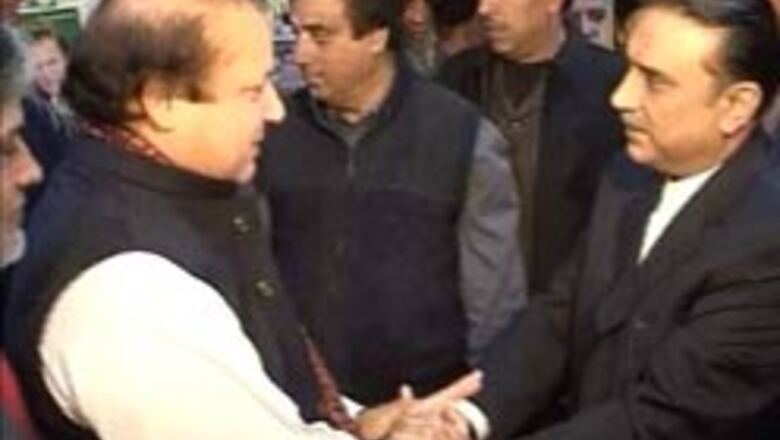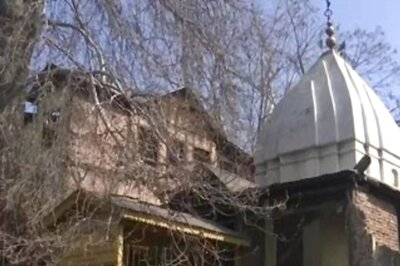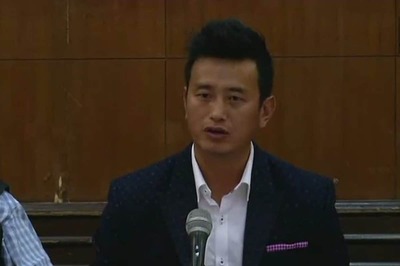
views
Islamabad: Fresh tensions have arisen in Pakistan's ruling coalition with Pakistan Peoples Party (PPP) leader Asif Ali Zardari blaming both President Pervez Musharraf and partner, former prime minister Nawaz Sharif, for the Kargil conflict of 1999 that invited international criticism.
“I think, both Musharraf and Nawaz Sharif were responsible for Kargil,” Zardari told an Indian news channel a few days ago, prompting an angry Pakistan Muslim League-Nawaz (PML-N) to demand an independent probe into the armed conflict that brought both countries on the brink of a full fledged war.
Though the PPP has said Zardari's remarks were twisted, PML-N leaders were in no mood to be mollified.
"It's no more a secret who initiated and who ended the conflict," PMN-L spokesperson Sidiqul Farooq said, referring to Sharif's sudden visit to the US in 1999 after which Pakistan withdrew its forces from the heights of Kargil.
"This is such an irresponsible statement that it may force the PML-N to consider withdrawing complete support to the coalition government," said a PML-N leader requesting anonymity.. "The whole world knows that Nawaz Sharif saved the country from larger conflict, but strangely the PPP chairperson has given this controversial statement, angering PML-N cadres," he said. The leader added that Zardari was scheduled to fly to London from Dubai to meet Sharif who was already in the British capital but no date had been confirmed. He said Zardari and Sharif in London would discuss the Kargil statement along with other coalition issues.
PPP and PML-N are major partners in the coalition government but Sharif's party withdrew its ministers over the issues of restoration of judges sacked by Musharraf last year. Though the PML-N continues its support to the PPP-led coalition, it is demanding reinstatement of the judges.
The Kargil conflict between May and July of 1999 triggered off after Pakistani troops held positions on the Indian side of the Line of Control, which serves as the de facto border between the two states.
During and directly after the war, Pakistan blamed the fighting entirely on independent Kashmiri insurgents. But documents left behind by casualties and later statements by the top brass showed involvement of Pakistani paramilitary forces.
The war is one of the most recent examples of high altitude warfare in mountainous terrain, and posed significant logistical problems for the combating sides. This was the first ground war between any two countries after they had developed nuclear weapons.
The conflict led to heightened tension between the two nations and increased defence spending on the part of India. In Pakistan, the aftermath triggered instability - on Oct 12, 1999, a coup d'etat by the military placed army chief Pervez Musharraf in power.



















Comments
0 comment